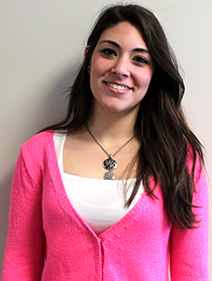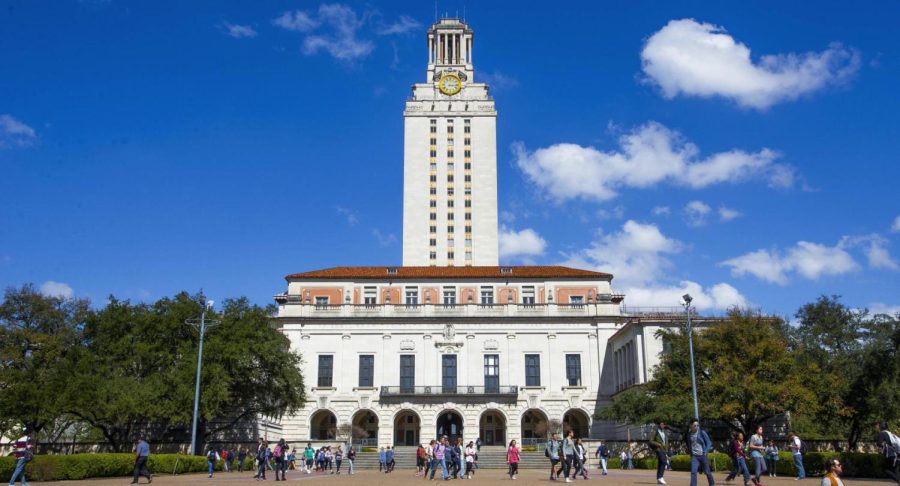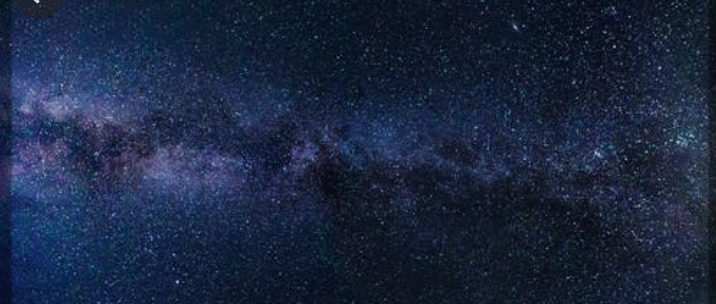On January of 2011, millions of Egyptians joined to form an uprising aimed at dethroning the president of the time, Hosni Mubarak. What began as peaceful acts of civil disobedience concluded in hundreds of citizens dead and thousands injured by violent responses from governmental forces. Protesters demanded an end to the Mubarak regime, yet removing power from one man could not clean the governmental system of corruption and malpractice. Many rose up, determined to fight that battle one day at a time. Others escaped, seeing beyond that day’s troubles and into an unknown future. This is where senior Mariam El Wakil’s story begins; right where the end and the beginning meet to form an unexpected adventure.
“It was a Friday, the 28th of January, when I woke up to the news showing masses of people getting shot,” Mariam said. “The government hired criminals to break into houses and malls to rape women. School shootings similar to the one in Newtown, Connecticut happened but often went unnoticed. People were terrified since the police had no control over the situation and provided no security. The Commander in Chief of the army sent out a message through the TV and said that after 11 pm, our curfew, the police had the right to shoot anyone who was out on the street…so we fled.”
Mariam’s home no longer offered protection but attracted danger instead. Her family escaped to Beirut, Lebanon, but the news of her hometown followed. A life in America was not in her plans until the her family was randomly selected to enter the country. The United States gives out Visas to a number of qualified immigrants each year, but there is also a lottery system through which families haphazardly receive Visas without having to wait behind other applicants. Mariam’s family won.
“We knew everything was going to change now. We were going to move our lives away from [Egypt,]” Mariam said. “We had a month to tell all our friends, all our family, to pack our stuff, and to get mentally and emotionally prepared for all of this. But this was America. We couldn’t believe it.”
On Mariam’s first day of school in Katy, the front office called my PALs class saying they needed someone to give her a tour. They also mentioned that there would be a language barrier. I assumed she spoke Spanish since I, a Spanish speaker, had been asked to do it. So when I introduced myself in Spanish, all I was received was a confused look. When Mariam arrived she actually spoke some English, not Spanish, and mostly Arabic.
Language was not the only thing we differed in, however. Nor was it our nationalities. Most of our differences were rooted in our culture.
“When we got here, it was hard,” Mariam said. “I was used to people complaining all the time because they led a sad life where they were always miserable and in need of money or where they were always sick. Here, people smiled all the time. I thought it was weird, but then I realized that if they [were] comfortable with their lives, so why shouldn’t they smile? It got to me that I [could] be like that, too. I [could] be that person who [was] smiling all the time and not worrying about the future.”
For the rest of that year, Mariam taught me more about life through stories of her past than I ever could by showing her around our school. All I could see in her was hope. Hope for a better tomorrow regardless of what today had to offer. Hope for an easier time speaking English regardless of the words she did not know today. Just hope for a brighter future knowing that yesterday was far gone.
“I hope that my family can be safe, too,” Mariam said. “That they can start worrying about other stuff than finding a job; that they can start dreaming about other stuff than being able to walk to school safe. That they can dream of being someone, of being famous.”
Our past should not define us, but explain us. It should not haunt us, but teach to us. If anything, it should only be a reminder of how hard it can be rather than an expectation of what it could be. Mariam’s home country continues to be insecure and full of grief, but she believes that it can get better, and so she smiles today.
“I smile because I trust God. I know He has a plan for me,” Mariam said. “There is hope in the future, always. Even if it is so bad right now, it will always get better. We’re 18. We still have lots of stuff to go through, happy and bad, ugly and good. There is always something to look forward to. If it is tough right now, something good will happen in the future.”
There are more languages in this world than I can count or pronounce, but a smile is something that needs no translation. Sometimes, a smile is more powerful than words. It can sum up an entire sentence and describe your whole day. It is a subtle reminder that you are okay, that life is okay, and that it will be okay. Smiling at someone might even be easier than saying “hello”, and at times, easier than saying “I’m sorry.”
What I am trying to get to here is that smiling is not as hard as some make it seem. Giving a smile meaning, and intention, is what becomes a challenge. But smiling in times of trouble is easier than facing trouble without hope. This does not mean that the next time you cut your finger or watch “The Boy in the Striped Pajamas” your instinct will be to smile. This just means that when life comes crashing down and your shoulders no longer bear the weight, looking around at what is still okay and smiling about it will make the weight seem lighter and the speed of life slower. Because facing the storm keeps you from seeing what is trying to save you, but searching for the light in the darkness will turn your focus on brighter days and give you a hope you did not have before. Who knows, the next time you smile at someone might be that hope they have been searching for.





